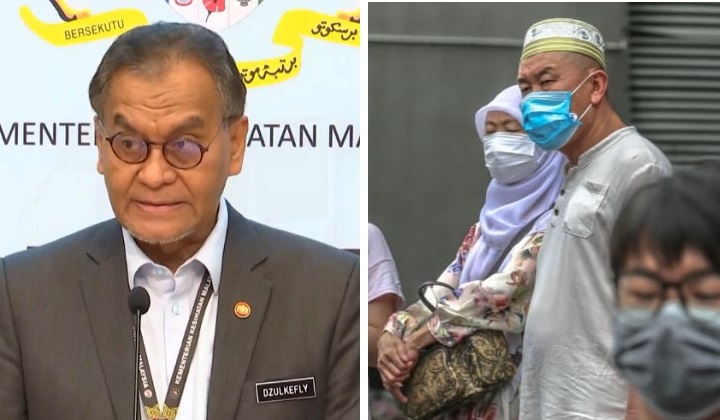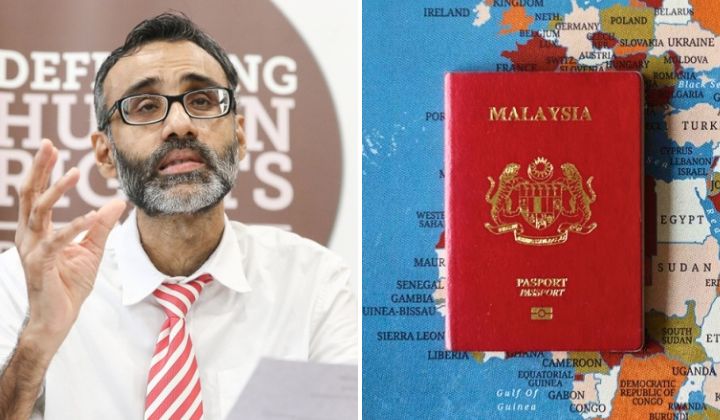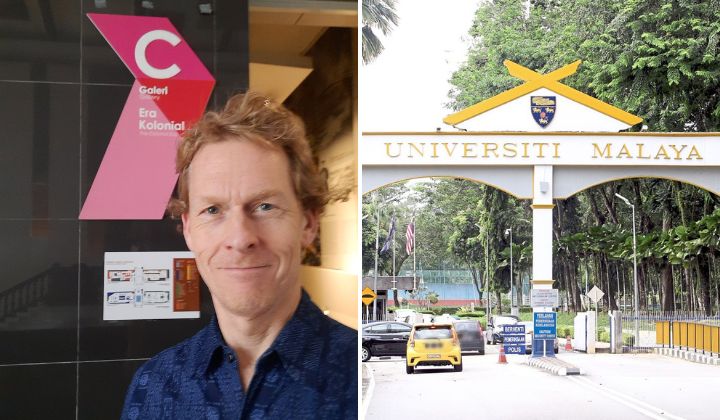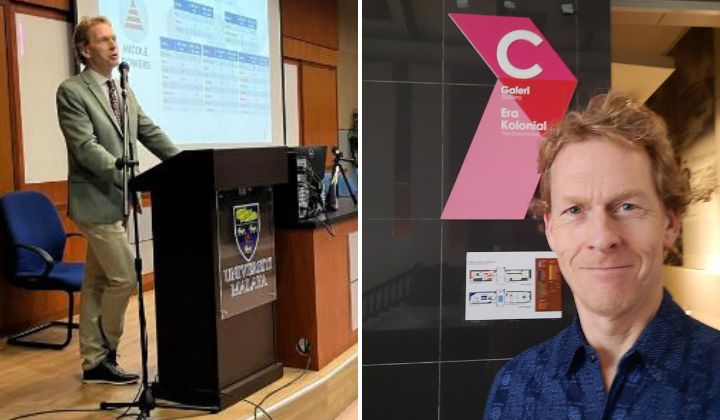Covid-19: Cases Increasing But We’re Not Talking Lockdowns Right Now, Says Dr Dzul
Dr Dzulkefly Ahmad outlined several strategies to handle the spike in Covid-19 cases.

Subscribe to our FREE Newsletter, or Telegram and WhatsApp channels for the latest stories and updates.
Health Minister Datuk Seri Dr Dzulkefly Ahmad in a press conference today said the number of Covid-19 cases jumped by 62.2% in the period between 10 December and 16 December compared to the previous week.
With regard to the ministry’s strategy in light of cases rapidly increasing, Dr Dzulkefly said there is still no need for lockdowns.
He then laid out the five strategies that the ministry will adopt.
Strategy 1: Heightened Alert System (HAS)
Strategy 2: Community surveillance via TRIIS (Test, Report, Isolate, Inform and Seek)
Strategy 3: Management and control of Covid-19 cases
Strategy 4: Community empowerment through effective risk communication
Strategy 5: Digitalisation of the healthcare system
“We are all getting ready for any eventualities, but there’s nothing to be alarmed (about),” Dr Dzulkefly said.
He added that the ministry advises and strongly encourages the wearing of face masks.
Since Covid-19 landed on our shores in January 2020, we have had a total 5,141,797 cases with 37,246 deaths.
Of the total deaths, 7,925 were brought-in-dead (BID) cases.
Age of the MCOs
Malaysia went into a nationwide lockdown due to Covid-19 on 18 March 2020. Known as the Movement Control Order (MCO), it was an effort to curb the spread of the disease that was still relatively unknown.
The first extension of the MCO was announced on 25 March 2020 by then prime minister Muhyiddin Yassin. The MCO extension was to last until 14 April 2020.
The second extension of the MCO was announced on 10 April 2020, extending the lockdown until 28 April 2020.
The third extension was announced on 23 April, this time extending the lockdown to 12 May 2020 with the possibility of further extensions until the spread of Covid-19 was kept under control.
During this time, everyone except essential workers was not allowed to move in between states (interstate travel). Everyone was to stay within their homes. Only essential workers were given special letters for permission to move about.
Those who flout the rules run the risk of being fined up to RM1,000 or jailed for not more than six months or both.
However, fines as punishment were scrapped as it was ineffective in reducing MCO violations. Instead, offenders were arrested and remanded. That said, this did not deter certain politicians and their family members from blatantly flouting the rules.
On 4 May 2020, the Conditional MCO (CMCO) was introduced. People were finally allowed to venture out of their homes but must observe social distancing and wear a mask when they’re out and about.
Businesses were also allowed to resume operations as long as they heed the standard operating procedures (SOPs) in place to minimise the spread of Covid-19.
Starting on 27 March 2020, some locations were subjected to Enhanced MCO (EMCO) for 14 days if a large Covid-19 cluster was detected within the area. Under EMCO, people are not allowed to exit their homes and businesses are forced to stop operations temporarily.
In an EMCO, food supplies were provided by the authorities and a medical base was established in the area.
READ MORE: [Day In The Life] Police Volunteer Reserve Tells Us What Duty Was Like During EMCO
Check-ins, but not Foursquare
The MySejahtera app was launched by then Health Minister Adham Baba on 20 April 2020. The app was used to conduct contact tracing, self-quarantine, and later for booking Covid-19 vaccine appointments.
On 7 June 2020, Muhyiddin announced that Malaysia would enter into the Recovery MCO (RMCO) phase between 10 June and 31 August 2020.
During RMCO, interstate travel was possible again. People still needed to observe the SOPs in place, which include social distancing and wearing a face mask when they’re outside.
However, MCO was reinstated on 11 January 2021 due to a surge in Covid-19 cases and it was widely known as MCO 2.0.
Malaysia went into a total lockdown or Full MCO (FMCO) on 28 May 2021 when daily new cases averaged over 5,000.
READ MORE: [JUST IN] MCO 3.0 Extended For Another 2 Weeks, Ends On 28 June, Says Ismail Sabri
The prolonged lockdowns prompted movements such as the Bendera Putih movement to help lower-income and needy communities get food and aid.
There was also a Black Flag movement in protest of the government’s poor handling of the pandemic.
By 15 June 2021, a four-phase National Recovery Plan (NRP) was introduced to help the country emerge from the Covid-19 pandemic and its economic fallout.
READ MORE: [JUST IN] MCO To Continue According To Recovery Plan
Vaccines
The Covid-19 vaccines became available in Malaysia on 24 February 2021, launching the National Covid-19 Immunisation Programme.
Muhyiddin became the first individual to receive the Pfizer-BioNTech vaccine and it was broadcast live nationwide.
Sinovac (Coronavac) vaccine was available in Malaysia on 18 March 2021 while the AstraZeneca (AZ) vaccine was made available on 27 April 2021 after authorities did a thorough study of clinical assessment and data.
During this time, there were worries and reports related to adverse effects following immunization (AEFI). Not everyone was keen on taking the vaccination due to misinformation and disinformation about the available vaccines.
READ MORE: Health DG: Sinovac And Pfizer Are Both Effective, Don’t Cherry-Pick
READ MORE: More Covid-19 Vaccines Approved For Malaysians, Here’s A Quick Summary Of What We’re Getting
READ MORE: KJ: No, Vaccine Isn’t Dajjal & One World Isn’t An Illuminati New World Order Conspiracy
Share your thoughts with us via TRP’s Facebook, Twitter, Instagram, or Threads.





